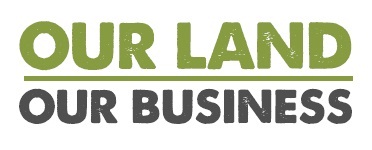Source IPS
By Isabel Ortiz and Leo Baunach
NEW YORK and WASHINGTON D.C. , Sep 2 2020 (IPS) – On 27 August the World Bank announced that it will suspend the Doing Business Report over data irregularities, until it conducts a review and audit. The halting of the report was welcomed by trade unions, academics and human rights groups.
The World Bank’s Doing Business Report ranks countries based on business regulations in 190 economies. The more regulations are slashed, the better a country does in the ranking. Most indicators are based on a standardized case study such as the conditions facing a small firm in the largest commercial city -this study characterizes the country.
Global reports that present comparable international statistics are highly valued. For example, the much acclaimed Human Development Report of the United Nations’ Development Program presents national progress on social development through a set of indications updated annually. The Human Development Report serves to create pressure on governments to perform better on education, health and other social development areas by comparing achievements in the basic dimensions of human development across countries.
In contrast, the World Bank’s Doing Business Report undermines social progress and promotes inequality. Since it was launched in 2003, the Doing Business Report has generated outrage for its anti-regulation bias. Inspired by the “Index of Economic Freedom” at the conservative Heritage Foundation, the report has encouraged countries to take part in the “deregulation experience” including reductions in employment protection, lower social security contributions (denominated as “labor tax”) and lesser corporate taxation.
In the report, a country ranks better when its social security contributions are low, that is, when employees have lesser social protection benefits for their families and retire with low pensions. Countries also get better rankings if corporate tax is low, no matter if this will generate further inequality and starve resources for national sustainable development. For example, India has improved in the reports’ international ranking as the government has eroded environmental and labor protections and reduced corporate taxation, resulting in detrimental social impacts.
After the global economic crisis, the Bank suspended the publication’s labor market flexibility indicator. However, the raw data was still published until attention from the US Congress stopped efforts to revive the indicator.
In 2013, an independent review panel established by the World Bank’s executive board and led by Trevor Manuel recommended that the use of rankings be discontinued. The panel also recommended the permanent deletion of the labor market flexibility and tax rate indicators, as the latter penalizes countries that require business to pay taxes or make contributions to pensions and other social protection schemes that support households.
Full article

It Is Time to End the Controversial World Bank’s Doing Business Report
Source IPS
By Isabel Ortiz and Leo Baunach
NEW YORK and WASHINGTON D.C. , Sep 2 2020 (IPS) – On 27 August the World Bank announced that it will suspend the Doing Business Report over data irregularities, until it conducts a review and audit. The halting of the report was welcomed by trade unions, academics and human rights groups.
The World Bank’s Doing Business Report ranks countries based on business regulations in 190 economies. The more regulations are slashed, the better a country does in the ranking. Most indicators are based on a standardized case study such as the conditions facing a small firm in the largest commercial city -this study characterizes the country.
Global reports that present comparable international statistics are highly valued. For example, the much acclaimed Human Development Report of the United Nations’ Development Program presents national progress on social development through a set of indications updated annually. The Human Development Report serves to create pressure on governments to perform better on education, health and other social development areas by comparing achievements in the basic dimensions of human development across countries.
In contrast, the World Bank’s Doing Business Report undermines social progress and promotes inequality. Since it was launched in 2003, the Doing Business Report has generated outrage for its anti-regulation bias. Inspired by the “Index of Economic Freedom” at the conservative Heritage Foundation, the report has encouraged countries to take part in the “deregulation experience” including reductions in employment protection, lower social security contributions (denominated as “labor tax”) and lesser corporate taxation.
In the report, a country ranks better when its social security contributions are low, that is, when employees have lesser social protection benefits for their families and retire with low pensions. Countries also get better rankings if corporate tax is low, no matter if this will generate further inequality and starve resources for national sustainable development. For example, India has improved in the reports’ international ranking as the government has eroded environmental and labor protections and reduced corporate taxation, resulting in detrimental social impacts.
After the global economic crisis, the Bank suspended the publication’s labor market flexibility indicator. However, the raw data was still published until attention from the US Congress stopped efforts to revive the indicator.
In 2013, an independent review panel established by the World Bank’s executive board and led by Trevor Manuel recommended that the use of rankings be discontinued. The panel also recommended the permanent deletion of the labor market flexibility and tax rate indicators, as the latter penalizes countries that require business to pay taxes or make contributions to pensions and other social protection schemes that support households.
Full article